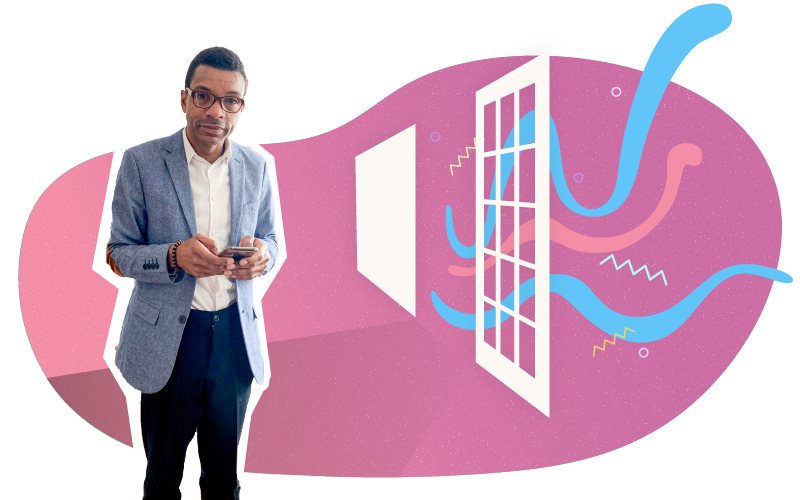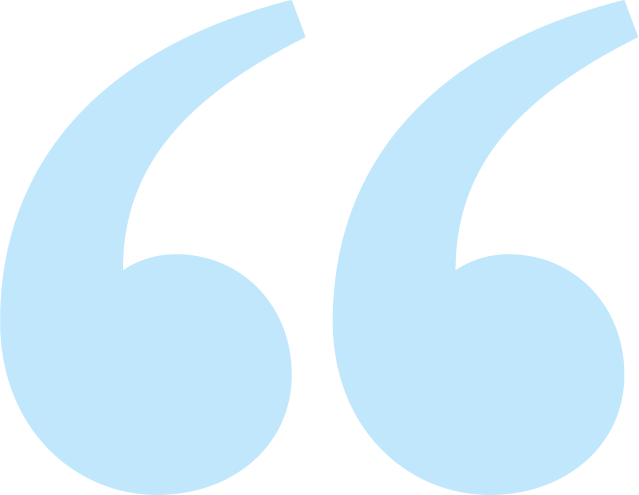Notable & Quotable: Kevin Dedner, founder and CEO of Hurdle
February 24, 2021
When Kevin Dedner founded digital health startup Hurdle in 2018, he couldn’t have anticipated what the following years would hold—a global pandemic and a death toll of more than 500,000 in the US, COVID-19’s disproportionate impact on Black communities and communities of color, the death of George Floyd and renewed calls for racial justice.
Navigating through a multi-year depression himself, Dedner already knew about the shortcomings of the mental healthcare system in the US—where just one-third of African Americans who need mental health support end up receiving it. His struggle to access care was a catalyst for Hurdle, and events that have unfolded since make the need for culturally intentional therapy even more clear.
Based in Washington, D.C., Hurdle offers teletherapy services with providers trained in cultural humility. Developed by Dr. Norma Day-Vine of Johns Hopkins, the startup uses a proprietary tool to measure cultural responsiveness and provide appropriate training and coaching for its therapists. Hurdle raised a $5 million early-stage investment from .406 Ventures, Seae Ventures and F-Prime Capital in January 2021, and Dedner and his team will use the capital to strategically scale its operations.
Dedner, who’s making the shift from founder to CEO—or from convincing people that his idea was worthwhile to executing that idea, he says—answers questions about his company, shares predictions for the future of digital health and gives advice for aspiring founders below.

After my depression, I came to understand that my experience was not uncommon—50% of African Americans terminate therapy prematurely because of provider fit. I took this experience and turned it into Hurdle's mission: "We exist to ensure people can show up whole, operate with joy, and live with power."
We have not landed in this place under ideal circumstances—this moment is the direct result of the COVID-19 pandemic and the death of George Floyd. These catalytic events have escalated what might have taken a very long time to unfold. But now more than ever, people are accessing mental health services and coming to a recognition that mental health is just as important as physical health. The racial reckoning that we are experiencing has caused a much more blunt assessment of our society’s conditions, and mental health hasn’t escaped this scrutiny—the disparities in mental health are arresting. Employers and payers are coming to terms with this reality too.
When the pandemic hit and after George Floyd’s death, we knew we were right where we needed to be. We quickly adjusted our operations and services offering. When we started the company, we were selling directly to consumers. While we continue to leave that door open, we are working to meet the needs of employers and payers who are sensitive to their employees and members’ needs.
On books, I’d recommend Radical Focus by Christina R. Wodtke, Good to Great by Jim Collins, Crossing the Chasm by Geoffrey A. Moore and No Rules Rules by Reed Hastings and Erin Meyer. The book that fundamentally shaped my thinking about mental health is What Doesn’t Kill Us by Stephen Joseph.
Listen to Season 2, Ep. 3 of our In Visible Capital podcast, which highlights advancements in telehealth during the pandemic
The enterprise health & wellness tech sector ended 2020 on a high note
Download the Q4 2020 Emerging Technology Research report on enterprise health and wellness tech to find out why
How has COVID-19 impacted fitness and mental health tech startups?
Download our Q2 2020 Analyst Note to find out, as well as which have raised the most capital
Mental health tech is one emerging space of many tracked by PitchBook
Read our blog post to find out what an emerging space is and see the full list
Read our 53 Black founders and investors to watch in 2021 blog post
From talk to action: Investors weigh in on ways to increase diversity in VC
Watch PitchBook’s panel discussion on the investor’s role in addressing inequality and diversity
Female founders and the impact of COVID-19
Download the All In: Female Founders and CEOs in the US VC Ecosystem report
LGBTQ+ founders and investors
Read PitchBook’s 33+ LGBTQ+ founders, entrepreneurs and VCs you should know blog post
Explore PitchBook's robust private market data coverage, including actionable insights on investors, professionals, companies, deals and more
Navigating through a multi-year depression himself, Dedner already knew about the shortcomings of the mental healthcare system in the US—where just one-third of African Americans who need mental health support end up receiving it. His struggle to access care was a catalyst for Hurdle, and events that have unfolded since make the need for culturally intentional therapy even more clear.
Based in Washington, D.C., Hurdle offers teletherapy services with providers trained in cultural humility. Developed by Dr. Norma Day-Vine of Johns Hopkins, the startup uses a proprietary tool to measure cultural responsiveness and provide appropriate training and coaching for its therapists. Hurdle raised a $5 million early-stage investment from .406 Ventures, Seae Ventures and F-Prime Capital in January 2021, and Dedner and his team will use the capital to strategically scale its operations.
Dedner, who’s making the shift from founder to CEO—or from convincing people that his idea was worthwhile to executing that idea, he says—answers questions about his company, shares predictions for the future of digital health and gives advice for aspiring founders below.

What was your background prior to founding Hurdle?
I’ve always been interested in the health and well-being of others. Before devoting my professional life to Hurdle, I spent my career working in the public health sector. I worked on the most pressing public health issues—from HIV/AIDS to tobacco control and childhood obesity. In my public health life, I understood the need to frame mental health as a public health issue, and I find myself leaning on my public health training often.Why did you create Hurdle?
Hurdle was borne out of my own experience with depression. Several years back, I was working to grow my public health consulting practice when I fell into depression. I knew there were barriers to seeking mental health care, especially as a Black man. I saw three therapists before I found one with whom I could establish an alliance for my care. Going through it made me realize just how difficult it is to find the right care.After my depression, I came to understand that my experience was not uncommon—50% of African Americans terminate therapy prematurely because of provider fit. I took this experience and turned it into Hurdle's mission: "We exist to ensure people can show up whole, operate with joy, and live with power."
 "I knew there were barriers to seeking mental health care, especially as a Black man."
"I knew there were barriers to seeking mental health care, especially as a Black man."
—Kevin Dedner, Hurdle
What do you wish you would’ve known at the start of your founding journey?
I don't think that anyone can be prepared for the journey of starting a venture-backed company. If I had known what it would take, I might have thought twice about taking the step forward. I love what I do, but would have liked to be more well-versed in the fundraising process from the start. I spent a lot of time running in place.What are your predictions for the future of the industry?
We are witnessing an incredible shift in the culture around accessing mental health services, and African Americans are the group with the largest increase in treatment-seeking behavior.We have not landed in this place under ideal circumstances—this moment is the direct result of the COVID-19 pandemic and the death of George Floyd. These catalytic events have escalated what might have taken a very long time to unfold. But now more than ever, people are accessing mental health services and coming to a recognition that mental health is just as important as physical health. The racial reckoning that we are experiencing has caused a much more blunt assessment of our society’s conditions, and mental health hasn’t escaped this scrutiny—the disparities in mental health are arresting. Employers and payers are coming to terms with this reality too.

How has COVID-19 impacted Hurdle?
This time last year, we were beginning to make some adjustments to our brand and service offering. When we started out, we were super focused on serving Black men because of the direct correlation between their physical and mental health. Black men have the lowest life expectancy of any population. We [at Hurdle] understood that therapy as we know it wasn’t designed for everyone.When the pandemic hit and after George Floyd’s death, we knew we were right where we needed to be. We quickly adjusted our operations and services offering. When we started the company, we were selling directly to consumers. While we continue to leave that door open, we are working to meet the needs of employers and payers who are sensitive to their employees and members’ needs.
What advice would you give to new or future founders?
Founding a company is hard. Promising founders know a problem very intimately. While we should always be willing to listen and pivot, be confident that you have an answer to the problem you are seeking to solve. Don’t let anyone—or any investor—talk you out of solving a problem that you know you know well. "Don’t let anyone—or any investor—talk you out of solving a problem that you know you know well."
"Don’t let anyone—or any investor—talk you out of solving a problem that you know you know well."
—Kevin Dedner, Hurdle
What resources have most impacted how you lead your company?
First, I have a fantastic ecosystem. My first Silicon Valley experience was with James Norman and the Transparent Collective. James taught me startup and VC culture. I learned the difference between a founder and CEO from Jim Stallings at PS27. The Morgan Stanley Multicultural Innovation Lab and Jillian Manus readied Hurdle for investment.On books, I’d recommend Radical Focus by Christina R. Wodtke, Good to Great by Jim Collins, Crossing the Chasm by Geoffrey A. Moore and No Rules Rules by Reed Hastings and Erin Meyer. The book that fundamentally shaped my thinking about mental health is What Doesn’t Kill Us by Stephen Joseph.
What’s next for Hurdle?
I am focused on critical hires and laying the foundation to scale our company. This year will be a year to lay the groundwork for growth. The need and the demand are clear, and we will be ready to meet the need.More on mental health, telehealth and other health tech startups
The rapid rise of telehealth during COVID-19Listen to Season 2, Ep. 3 of our In Visible Capital podcast, which highlights advancements in telehealth during the pandemic
The enterprise health & wellness tech sector ended 2020 on a high note
Download the Q4 2020 Emerging Technology Research report on enterprise health and wellness tech to find out why
How has COVID-19 impacted fitness and mental health tech startups?
Download our Q2 2020 Analyst Note to find out, as well as which have raised the most capital
Mental health tech is one emerging space of many tracked by PitchBook
Read our blog post to find out what an emerging space is and see the full list
More on diversity in venture capital
Celebrating Black founders and investorsRead our 53 Black founders and investors to watch in 2021 blog post
From talk to action: Investors weigh in on ways to increase diversity in VC
Watch PitchBook’s panel discussion on the investor’s role in addressing inequality and diversity
Female founders and the impact of COVID-19
Download the All In: Female Founders and CEOs in the US VC Ecosystem report
LGBTQ+ founders and investors
Read PitchBook’s 33+ LGBTQ+ founders, entrepreneurs and VCs you should know blog post
More on PitchBook’s data coverage
See how our data can take your firm furtherExplore PitchBook's robust private market data coverage, including actionable insights on investors, professionals, companies, deals and more
Note: This Q&A has been edited slightly for length and clarity.
Comments:
Thanks for commenting
Our team will review your remarks prior to publishing.
Please check back soon to see them live.